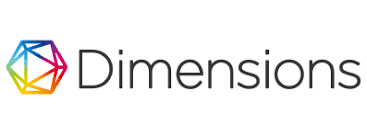Impact of Covid-19 Social Restrictions on Seafood Culinary-Based Tourism Industry at Kampung Solor
DOI:
https://doi.org/10.36276/mws.v21i1.401Keywords:
COVID-19, Culinary, Tourist, Social Distancing, Business UnitAbstract
The impact of the COVID-19 pandemic has occurred in various sectors, one of which is the culinary industry. This study aims to identify the impact of COVID-19 social restrictions on the seafood-based tourism industry at the Solor Village Night Market. Using qualitative methods, research informants were selected by purposive sampling technique, which resulted in as many as 24 culinary business unit owners becoming research participants. Data collection techniques were carried out, starting with observation, interviews, and documentation. The results of this study indicate that: (1) COVID-19 social restrictions are implemented evenly throughout Indonesia, including in East Nusa Tenggara Province, so that people are more active at home. (2) There are at least two impacts of the pandemic that were felt by the culinary business unit managers at the Solor Village Night Market, namely the impact on the decline in income and job opportunities. (3) The impact of the COVID-19 social restrictions on the decrease in the income of the culinary business unit managers is influenced by several factors, such as the decline in people's purchasing power and the tendency to stay active at home so that economic activity is not optimal. (4) The impact of the pandemic on job opportunities was felt by the employees of the culinary business unit at the Pasar Malam Kampung Solor who rely on their daily wage income to support education, where as many as more than 50% of the employees were laid off. The next recommendation for business unit managers is to be able to use social media as an alternative promotion tool to maintain income in times of crisis.
References
Amri, A. (2020). Dampak covid-19 terhadap UMKM di Indonesia. BRAND Jurnal Ilmiah Manajemen Pemasaran, 2(1), 123-131. https://ejournals.umma.ac.id/index.php/brand/article/view/605
Combs, S. (2021). Indonesia is a new COVID-19 epicenter. The peak has yet to come. Retrieved from:
https://www.nationalgeographic.com/history/article/indonesia-is-new-covid-epicenter-but-the-peak-has-yet-to-come . 16 Januari 2022.
Hanoatubun, S. (2020). Dampak Covid–19 terhadap Perekonomian Indonesia. EduPsyCouns: Journal of Education, Psychology and Counseling, 2(1), 146-153. https://ummaspul.e-journal.id/Edupsycouns/article/view/423
Hidayat, A. A. N. (2021). Dampak Pandemi, Kadin: Kerugian Sektor Pariwisata Rp 10 T Selama 2020. [Online] (diupdate 11 Januari 2021) Retrieved from: https://bisnis.tempo.co/read/1422053/dampak-pandemi-kadin-kerugian-sektor- pariwisata-rp-10-t-selama-2020/full&view=ok. [11 Januari 2021]
Kurniawansyah, H., Amrullah, A., Salahuddin, M., Muslim, M., & Nurhidayati, S. (2020). Konsep kebijakan strategis dalam menangani eksternalitas ekonomi dari COVID-19 pada masyarakat rentan di Indonesia. Indonesian Journal of Social Sciences and Humanities, 1(2), 130-139. https://journal.publication-center.com/index.php/ijssh/article/view/117
Li, H., Liu, S. M., Yu, X. H., Tang, S. L., & Tang, C. K. (2020). Coronavirus disease 2019 (COVID-19): current status and future perspectives. International Journal of Antimicrobial Agents, 55(5), 105951. https://doi.org/10.1016/j.ijantimicag.2020.105951
Nasruddin, R., & Haq, I. (2020). Pembatasan sosial berskala besar (PSBB) dan masyarakat berpenghasilan rendah. SALAM: Jurnal Sosial dan Budaya Syar-i, 7(7), 639-648. DOI: 10.15408/sjsbs.v7i7.15569
Raditya, I. N. (2020). Apa Itu 3M untuk Mencegah & Menekan Penularan Virus COVID-19?. [Online] (2 Oktober 2020) Retreived from: https://tirto.id/apa- itu-3m-untuk-mencegah-menekan-penularan-virus-covid-19-f5tV. [11 Januari 2021]
Ramalan, S. (2021). Dampak Pandemi, Wisatawan Labuan Bajo Anjlok 82 Persen. [Online] (5 Januari 2021) Retreived from: https://www.idxchannel.com/economics/dampak-pandemi-wisatawan-labuan- bajo-anjlok-82-persen. [5 Desember 2020]
REVIEW RENCANA TERPADU DAN PROGRAM INVESTASI INFRASTRUKTURJANGKA MEMENENGAH KOTA KUPANG TAHUN 2017-2021. [Online] (5 Januari 2020) Retreived from: https://sippa.ciptakarya.pu.go.id/sippa_online/ws_file/dokumen/rpi2jm/DOCRPIJ M_1501383405Bab_2_PROFIL.pdf. [5 Desember 2020]
Shalihah, N. F. (2020). Total 1,9 Juta Pekerja Di-PHK dan Dirumahkan akibat Pandemi Virus Corona, Tren. [Online] (25 September 2021) Retreived: https://www.kompas.com/tren/read/2 020/04/19/081000465/total-19-jutapekerja- di-phk-dan-dirumahkanakibat-pandemi-viruscorona?pag. [11 Januari 2021]
Sugiyono, D. (2010). Metode Penelitian Kuantitatif dan Kualitatif dan R&D. ALFABETA Bandung. http://repository.um-palembang.ac.id/id/eprint/8411/
Thaha, A. F. (2020). Dampak covid-19 terhadap UMKM di Indonesia. BRAND Jurnal Ilmiah Manajemen Pemasaran, 2(1), 147-153. https://scholar.google.co.id/scholar_url?url=http://ejournals.umma.ac.id/index.php/brand/article/download/607/
Tokan, B. (2020). Menggairahkan kembali pariwisata NTT di tengah pandemic. [Online] (15 Juli 2020) Retrieved from: https://www.antaranews.com/berita/1612346/menggairahkan-kembali-pariwisata- ntt-di-tengah-pandemi. [11 Januari 2021]
Widjaja, A. (2021). Dampak yang Diterima Pariwisata Indonesia Selama Pandemi Virus COVID-19. [Online] (5 Januari 2021) Retrieved from: https://tangerangnews.com/nasional/read/34316/Dampak-yang-Diterima Pariwisata-Indonesia-Selama-Pandemi-Virus-COVID-19. [11 Januari 2021]
Zahrulianingdyah, A. (2018). Kuliner Sebagai Pendukung Industri Pariwisata Berbasis Kearifan Lokal. TEKNOBUGA: Jurnal Teknologi Busana dan Boga, 6(1), 1-9. https://journal.unnes.ac.id/nju/index.php/teknobuga/article/download/16667/8444
Downloads
Published
How to Cite
Issue
Section
Categories
License
Copyright (c) 2023 Yudha Eka Nugraha

This work is licensed under a Creative Commons Attribution-ShareAlike 4.0 International License.







